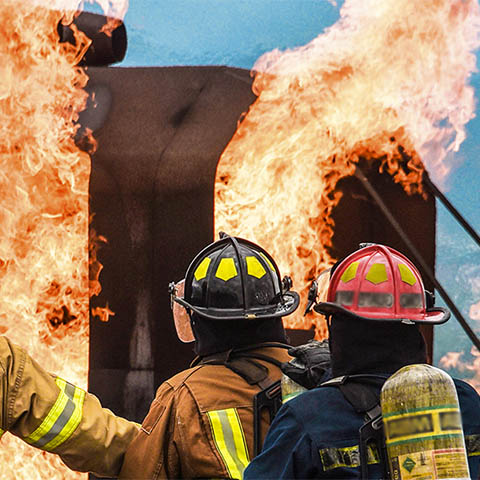Navigating National Crises: The Significance of Emergency and Disaster Management
Considering the challenges and conflicts of our modern world, emergency and disaster management (EDM), which consists of fire, police, EMS, emergency managers, health officials, and hospitals, emerges as a critical discipline for national preparedness and resilience. Our country depends on these professionals to leverage their knowledge and skills to safely navigate the complexities of local, state, and national crises, whether they stem from daily emergencies, natural disasters, or human actions.
By combining rigorous academic study with practical training, students pursuing a degree in emergency and disaster management, including members of the military and professionals in public safety, are empowered with the potential to anticipate, mitigate, prepare, respond, and recover from emergencies with precision and agility.
In an era of unease and reliance on public safety officials, these professionals play a pivotal role in safeguarding communities and maintaining stability.
Top Programs
All Related Programs
The High Value of an EDM Degree
The value of an emergency and disaster management program lies in its capacity to cultivate management-level thinking and a specialized, multifaceted skill set crucial for handling a wide array of crises. Typically, a disaster management program goes beyond theoretical understanding, usually providing graduates with hands-on experiences in simulations and critical thinking that prepare them to respond swiftly and effectively in high-pressure situations.
Graduates have the chance to emerge equipped with the knowledge to anticipate and manage risks and the potential leadership and communication skills necessary to coordinate complex emergency responses.
The EDM degree is also highly valuable because of the importance and necessity of preparing and protecting our nation from emergencies and disasters, as well as effectively managing them.
The emergency and disaster management community comprises a diverse range of professionals dedicated to preparing for, responding to, and recovering from emergencies and disasters. This community includes but is not limited to:
Emergency responders: Firefighters, police officers, paramedics, and other first responders provide immediate assistance during emergencies.
Emergency managers: These professionals coordinate emergency preparedness, response, and recovery efforts with local governments as well as state and federal agencies.
Public health officials: These experts address public health concerns during crises, such as disease outbreaks like COVID-19 or environmental hazards.
Government agencies: These are the departments and agencies responsible for disaster response and recovery, such as FEMA (the Federal Emergency Management Agency) in the U.S.
Non-governmental organizations (NGOs): These organizations provide humanitarian aid, relief, and support services during disasters, such as the Red Cross and Doctors Without Borders.
Academics and researchers: There are scholars and researchers who study emergency management, develop best practices, and contribute to the advancement of the field through their work.
Private sector: Some businesses and corporations play a role in disaster preparedness, response, and recovery, such as utility companies or construction firms involved in rebuilding efforts.
The Essential Skills Gained in an Emergency and Disaster Management Degree Program
From understanding the dynamics of various emergencies to developing robust emergency planning, students pursuing an EDM degree can expect to gain comprehensive knowledge and practical skills that are essential for effectively managing crises. These skill sets are needed in order to seek advancement within public safety or emergency management organizations.
For students beginning their journey in EDM, a bachelor’s degree offers foundational knowledge in the field. Those aiming for advanced expertise and greater responsibility often pursue a master’s degree. A master’s degree is the benchmark for fire and police executives in the United States. Here is a closer look at the key objectives of each degree program:
Bachelor of Arts in Emergency and Disaster Management
In a Bachelor of Arts EDM degree program, students focus on mastering the fundamental principles and theories of the field while developing practical skills to prepare, respond, and recover from various crisis situations. The curriculum may emphasize the development of relevant skills such as critical thinking, communication, leadership, and problem-solving.
A bachelor’s degree program in emergency and disaster management, such as American Military University’s (AMU) bachelor of arts program, will explore topics such as EDM phases, crisis management, emergency preparedness, counterterrorism, risk assessment, and hazard identification.
At AMU, students receive instruction from expert faculty, many of whom are certified emergency managers with years of experience.
Through interactive experiences and practical training, students have the chance to gain valuable insights and real-world skills that can potentially prepare them for dynamic roles in the EDM community.
Master of Arts in Emergency and Disaster Management
A Master of Arts in EDM prepares students with the potential to lead in times of crisis. These programs often attract law enforcement or military personnel seeking to expand their knowledge base or assume increased roles of responsibility.
These advanced degrees, like the EDM master’s program at AMU, aim to facilitate professional growth by deepening students' understanding of emergency management principles, refining their strategic planning and decision-making abilities, and fostering advanced skills in risk assessment, crisis communication, and disaster recovery coordination. Additionally, collaboration needed among agencies is examined.
Students delve into the field's historical background, response strategies, recovery processes, and economic aspects.
An EDM master's program may focus on critical analysis and the development of imperative, field-relevant skills such as problem-solving, analytical thinking, collaboration, and communication to evaluate and respond to crises. Another typically significant aspect of these programs is the development of ethical leadership and cultural sensitivity in addressing the diverse needs of communities affected by emergencies.
Master of Arts in Emergency and Disaster Management and Homeland Security - Dual Degree
For students intrigued by the convergence of crucial disciplines, specialized programs like American Military University's dual master's degree in emergency and disaster management and homeland security offer a unique opportunity. This program delves into the complexities of emergency response and national security management and strategy, providing a comprehensive understanding of both fields.
This innovative program awards two master's degrees — one in homeland security and another in emergency and disaster management — enabling students to address contemporary domestic security challenges.
Through AMU's curriculum, students develop skills in organizing emergency management resources, adhering to federal guidelines, and formulating policies to integrate agencies within emergency operations centers. Students also conduct economic and social research, informing funding recommendations to financial agencies, and ensuring alignment with national response frameworks.
Emergency and Disaster Management Resources
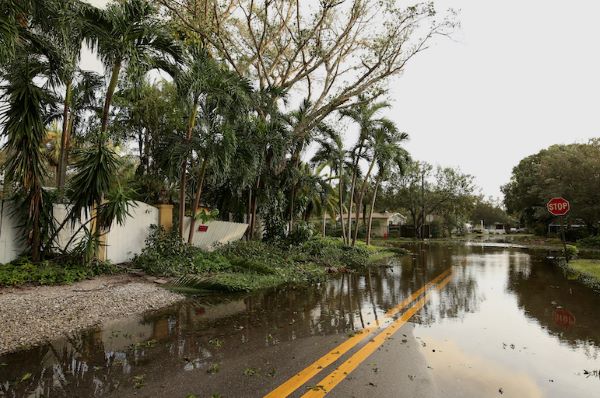
Emergency Management Preparedness: 20 Questions to Ask
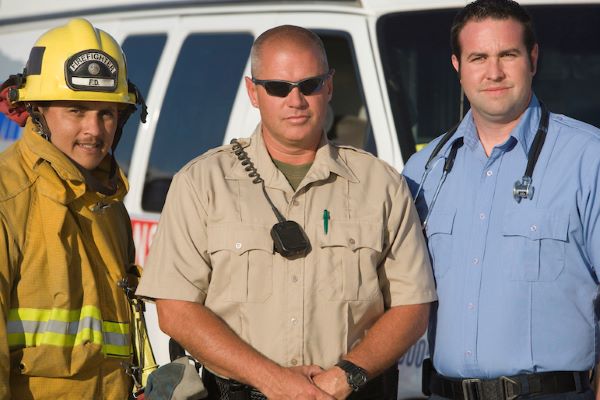
Law Enforcement's Role in Responding to Disasters: Aiding EM
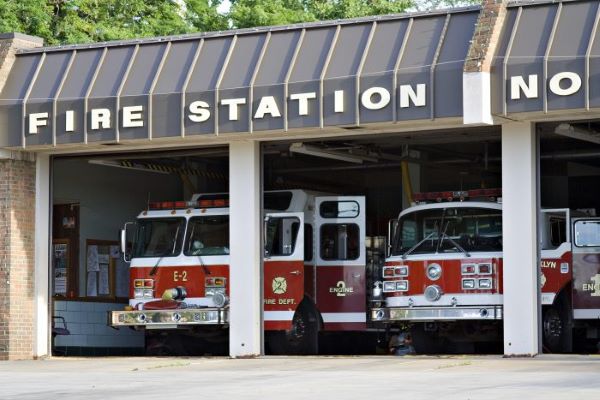
A Fire Department Annual Training Plan: The Basic Elements
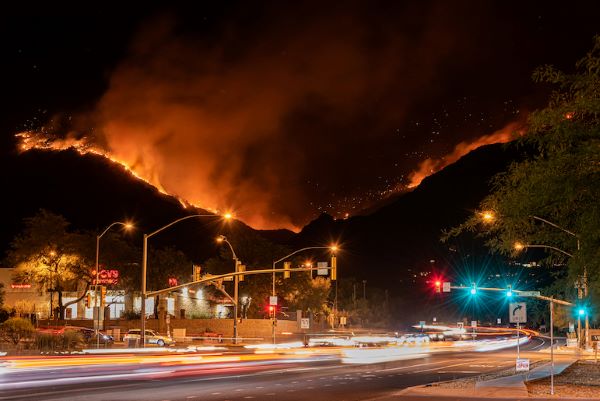
Additional Resources
Frequently Asked Questions
The best degree for emergency management depends on your interests and career goals. Many EDM professionals obtain a master’s degree, however before doing so, a bachelor’s degree is necessary.
If your goal is to seek roles with greater responsibility, requiring a high-level of expert knowledge, consider a master’s degree. Students gain deep insights into prevention and planning, managing, and the development of legislation and policies related to emergency management.
If your goal is to gain comprehensive, foundational knowledge in emergency management, a bachelor’s degree may be the right choice. Undergraduate programs typically provide training and instruction in preparing for a disaster, including response, recovery, risk assessment, and communication during crises.
Though these terms may be used interchangeably, each term focuses on different aspects of handling crises and disasters.
Emergency Management: This is the broadest term among the three and encompasses the entire process, including the planning, organizing, coordinating, and implementing measures to prevent, reduce, respond to, and recover from emergencies and disasters. Emergency management is comprehensive and involves all types of hazards — natural, technological, and human-caused.
Disaster Management: Disaster management applies once an emergency has escalated to a level that necessitates external assistance to cope with its impacts. This process focuses on managing and reducing impacts on life, property, and the environment. It also encompasses the development of long-term strategies aimed at recovery and rebuilding.
Emergency Preparedness: This focuses on planning, training, and resource allocation before an emergency to enhance the response capabilities of individuals, organizations, and communities to disaster impacts.
Any hiring decisions are made by FEMA and you should always consult their website. But several degree programs may prepare you, depending on the specific role you are interested in. Here are some of the most relevant degrees:
Emergency Management: Directly relevant to FEMA's core mission, a degree in emergency management, or emergency and disaster management, provides comprehensive education in disaster response, recovery, reduction, and preparedness.
Homeland Security: This degree focuses on protecting the United States from internal and external threats, including natural disasters, which aligns closely with many of FEMA's responsibilities.
Environmental Science: This degree can be useful, especially for roles related to managing environmental catastrophes and understanding ecological impacts associated with natural disasters.
Public Health: For roles focused on disaster health management, a public health degree can provide insights into preparing for and responding to health-related aspects of emergencies.

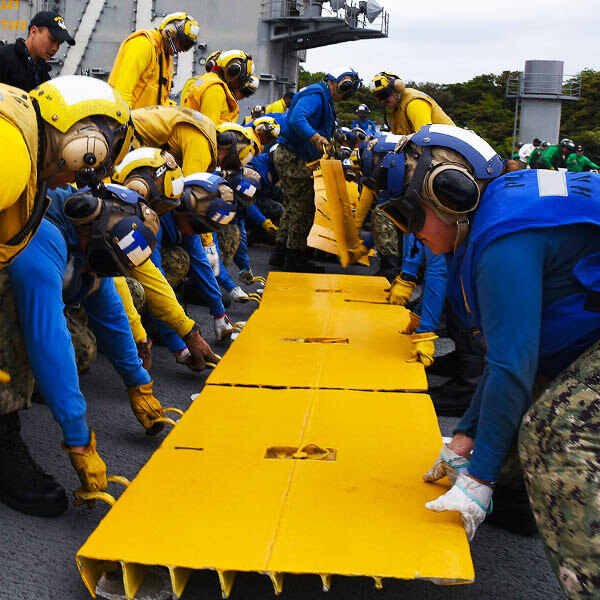

.jpg)
